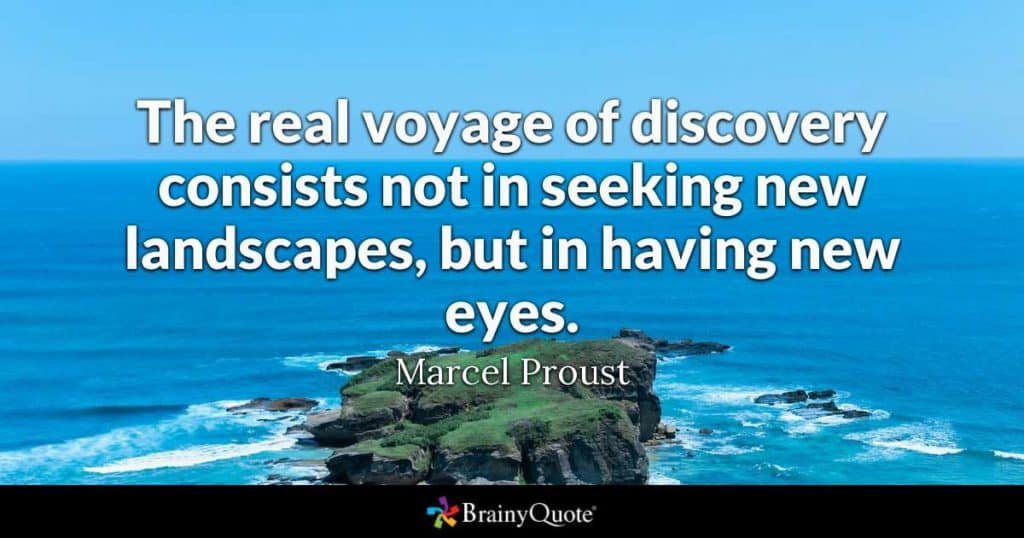Welcome to the Climate Sciences Voyage of Discovery! This will be a weekly feature of The Smokey Wire for the foreseeable future.
I am the veteran of over 30 years of following the climate sciences and their ins and outs. This series will specifically address epistemology (how do you know what you know?), history of science, and sociology of science. That is, we will be taking several steps back from the table of climate science as it is today to investigate how those plates got to the table.
One thing I’ve noticed in online discussions is that people, including scientists, are extraordinarily mean to each other by TSW standards. So I’m going to make this place safe for folks to ask questions or make comments by having a higher level of moderation. Please feel free to invite non-TSW friends along for the Voyage.
Today we’ll start at the very beginning with some epistemology, in this write-up from New Scientist.
This weakness becomes greater as we extend the scientific method into more complex realms with more variables and so more uncertainty, such as social science or climate change. Science progresses legitimately through speculation and hypothesising, but until these speculations are tested by experiment, for a stickler any “knowledge” that emerges from them must strictly be labelled as provisional.
It is a weakness (or strength, depending on your point of view) exploited with gusto by climate-change sceptics, among others. But it points to a blunt truth: if scientific knowledge feels special to you, you are in its in-group. As we grow up, we absorb beliefs from our cultural environment. For some that means accepting scientific knowledge; for others it means “revealed” knowledge, from the Bible, say.
And here’s the thing. For all the bluster about “the evidence”, if you are a scientific believer you too are taking almost all of it on trust. “In principle everybody should be able to replicate scientific results given time, money and training,” says Brigitte Nerlich at the University of Nottingham, UK. “But not everyone has a Large Hadron Collider or a climate-modelling computer.” You are taking someone’s word for it. Like other forms of knowledge, most of science comes down to trusting the source.
Not special, then? Perhaps – except that science also provides mechanisms to justify trust in the knowledge it generates. “Authority in science is earned – at least, when a scientific community is functioning well – by success at predicting, and more generally at analysing, empirical phenomena,” says philosopher Edward Hall of Harvard University. Science’s conclusions are accepted when they fit with our experience of the physical world, and are discarded when they cease to. That makes trust in science a justified true belief – and knowledge that true science generates a cut above the rest. Just don’t take my word for it.
There are three questions in this article that we examine at each stop (topic area) on the rest of the Voyage..
(1) Are the institutions and individuals in different parts of the climate sciences worthy of that trust? We’ll go ahead and look at some scientist and institution behavior.
(2) Many climate studies predict phenomena in the future, but can’t have empirical testing of those predictions. To what extent are those actually “science” in the traditional sense of being tested against empirical phenomena? Is a series of linked assumptions, on its own, “science”? If they are not “science” what are they, and how much of the authority, if any, should they have?
(3) “Science’s conclusions are accepted when they fit with our experience of the physical world, and are discarded when they cease to.” Whose experience? That subdiscipline of the scientific community? Other disciplines? Practitioners (if they exist in a specific science world, say doctors for medical sciences)? The public? At some point, the interpersonal dynamics of the subdiscipline may say “we must be right” and may question the legitimacy of others- others who indeed have experience in the physical world. Those with experience may say that the subdiscipline is more interested in reinforcing their authority and accumulating grant funding, and can’t be objective. IMHO the practitioner/researcher discussion is the most productive for knowledge production, but the occurrence of opportunities for this interaction are highly uneven across the climate sciences.
